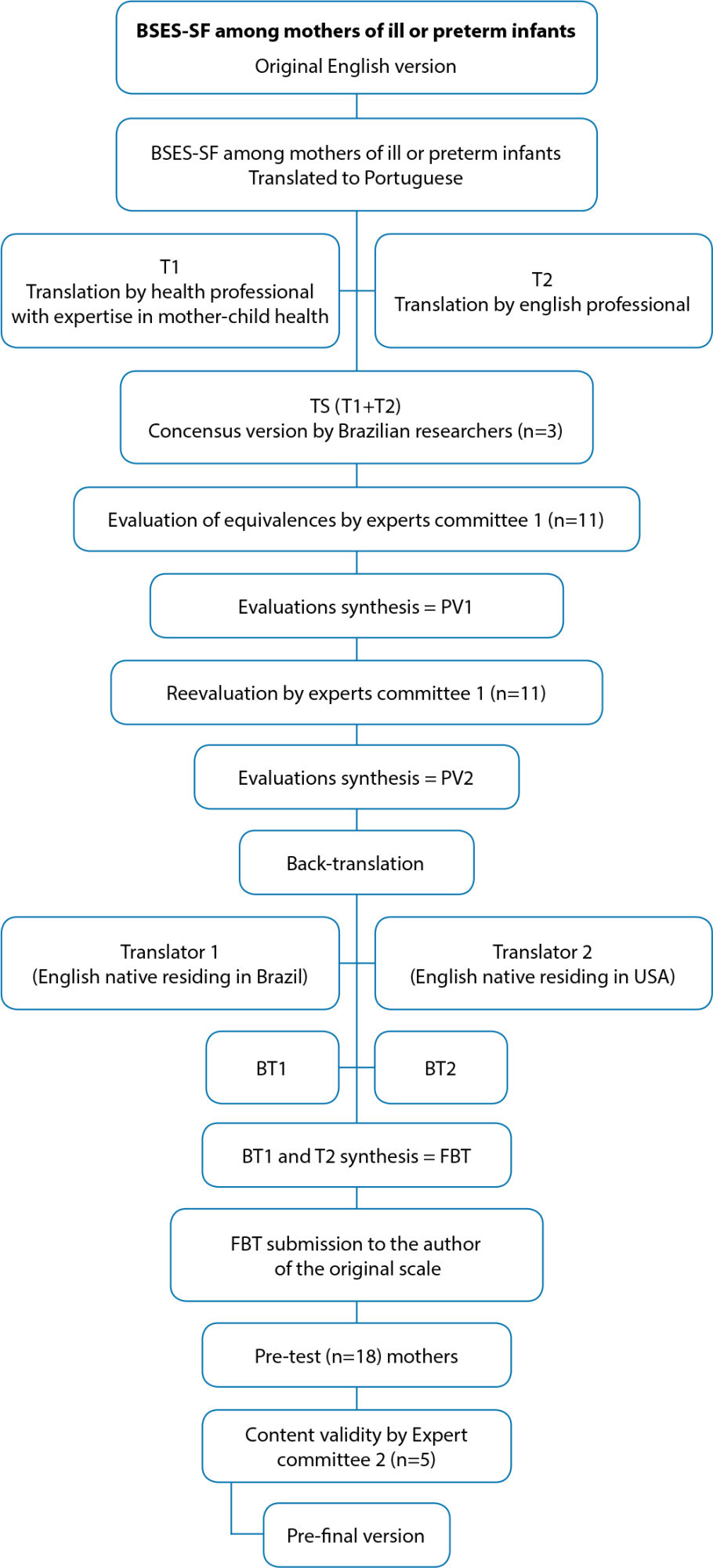-
ORIGINAL ARTICLE11-27-2023
Cross-cultural adaptation of the Breastfeeding Self-Efficacy Scale Short Form (BSES-SF) modified for preterm mothers in Brazil
Revista Brasileira de Enfermagem. 2023;76(5):e20220497
Abstract
ORIGINAL ARTICLECross-cultural adaptation of the Breastfeeding Self-Efficacy Scale Short Form (BSES-SF) modified for preterm mothers in Brazil
Revista Brasileira de Enfermagem. 2023;76(5):e20220497
DOI 10.1590/0034-7167-2022-0497
Views0ABSTRACT
Objectives:
to conduct a cross-cultural adaptation of the Breastfeeding Self-Efficacy Scale-Short Form (BSES-SF) for mothers of ill and/or preterm infants among Portuguese-speaking mothers in Brazil.
Methods:
a methodological study was completed, including the translation of the tool, synthesis of translations, review by experts, synthesis, reassessment of experts, back-translation, pre-test, and validation of the content. The study involved 19 participants, including a translator and experts. In addition, 18 mothers from the target population were included in the pre-test.
Results:
the equivalences of the opinion obtained by the committee of experts were semantic (85%), idiom (89%), cultural (86%), and conceptual (94%). The content validation coefficient (CVC) on the scale was 0.93 for clarity and understanding; 0.89 for practical relevance; 0.92 for relevance; and the average overall CVC was 0.91.
Conclusions:
the scale was translated and adapted to the Brazilian Portuguese language, which maintained the equivalences and confirmed the content validity.
Keywords:BreastfeedingMethodological Research in NursingPremature NewbornSelf-EfficacyValidation StudySee more



